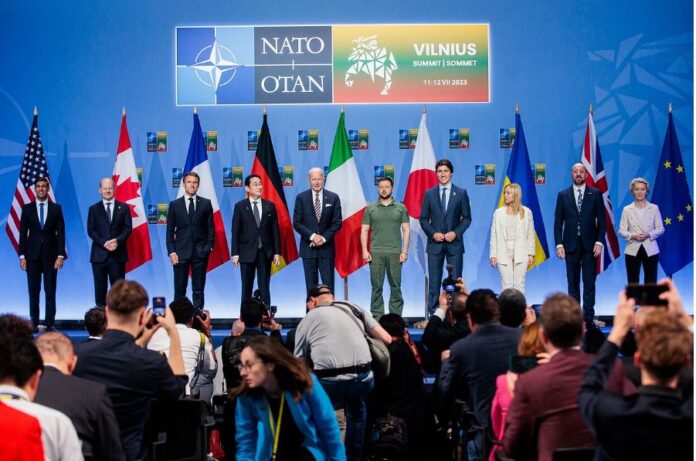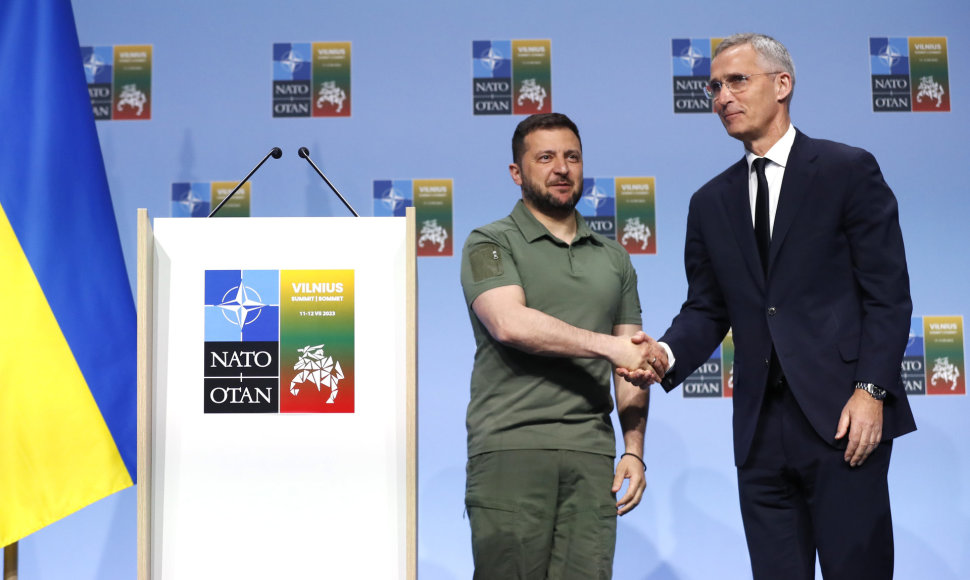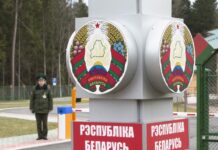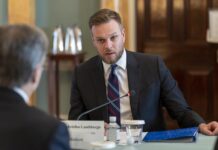
At the NATO summit in Vilnius, Lithuania achieved all it had set out to do at the start of the year, according to Kęstutis Budrys, chief security adviser to President Gitanas Nausėda. NATO leaders decided on July 11 that an invitation to Ukraine to join the alliance would be extended “when allies agree and conditions are met”. NATO secretary-general Jens Stoltenberg said it would streamline the accession process and make Ukraine’s membership dependent on a purely political decision. “This will change Ukraine’s membership path from a two-step process to a one-step process,” he said on the first day of the summit.

Ukraine’s president, Volodymyr Zelenskyy, had hoped there would be an actual invitation to join NATO, but after direct discussions with Stoltenberg the next day, said the results of the summit are good, and that Ukraine understands that it cannot [become] a NATO member during a war. He also spoke optimistically about a new NATO-Ukraine Council, a forum where Ukraine and NATO allies will meet as equals, hold crisis consultations and jointly take decisions, and will be “not just a tool for participation, but for integration.”
 According to The Baltic Times, Ukraine and its closest allies ultimately left Vilnius disappointed that the wording of the communiqué was not stronger. Polish President Andrzej Duda said that the declaration on Ukraine was “absolutely insufficient”, while Estonia’s prime minister, Kaja Kallas, said that she could “understand Ukraine’s frustrations”. Duda and Kallas have been two of the staunchest advocates of Ukrainian NATO membership, along with the UK, France, and most of the countries of Central and Eastern Europe. The US and Germany have taken a more circumspect approach.
According to The Baltic Times, Ukraine and its closest allies ultimately left Vilnius disappointed that the wording of the communiqué was not stronger. Polish President Andrzej Duda said that the declaration on Ukraine was “absolutely insufficient”, while Estonia’s prime minister, Kaja Kallas, said that she could “understand Ukraine’s frustrations”. Duda and Kallas have been two of the staunchest advocates of Ukrainian NATO membership, along with the UK, France, and most of the countries of Central and Eastern Europe. The US and Germany have taken a more circumspect approach.
According to NATO chief Stoltenberg, “the most urgent task now is to ensure Ukraine has enough weapons”. This has so far proven to be difficult. As NATO leaders met in Vilnius, it was being reported that Ukraine’s ammunition use is “staggering”, with an estimated 2,000 to 7,000 artillery shells fired per day. While still a fraction of Russia’s use, thought to be 20,000 and 50,000 per day, the rate is enough to worry NATO officials.

Meeting on the sidelines of the summit, leaders of the G7 countries (Canada, France, Germany, Italy, Japan, the UK and the US) agreed on a package of new bilateral assurances of military and economic support for Ukraine, to deter Russian aggression before it joins NATO. The package will include more air defence, long-range missiles and even warplanes, as well as more training, intelligence sharing and help with cyber technology. Zelensky called the package “a significant security victory.”






























